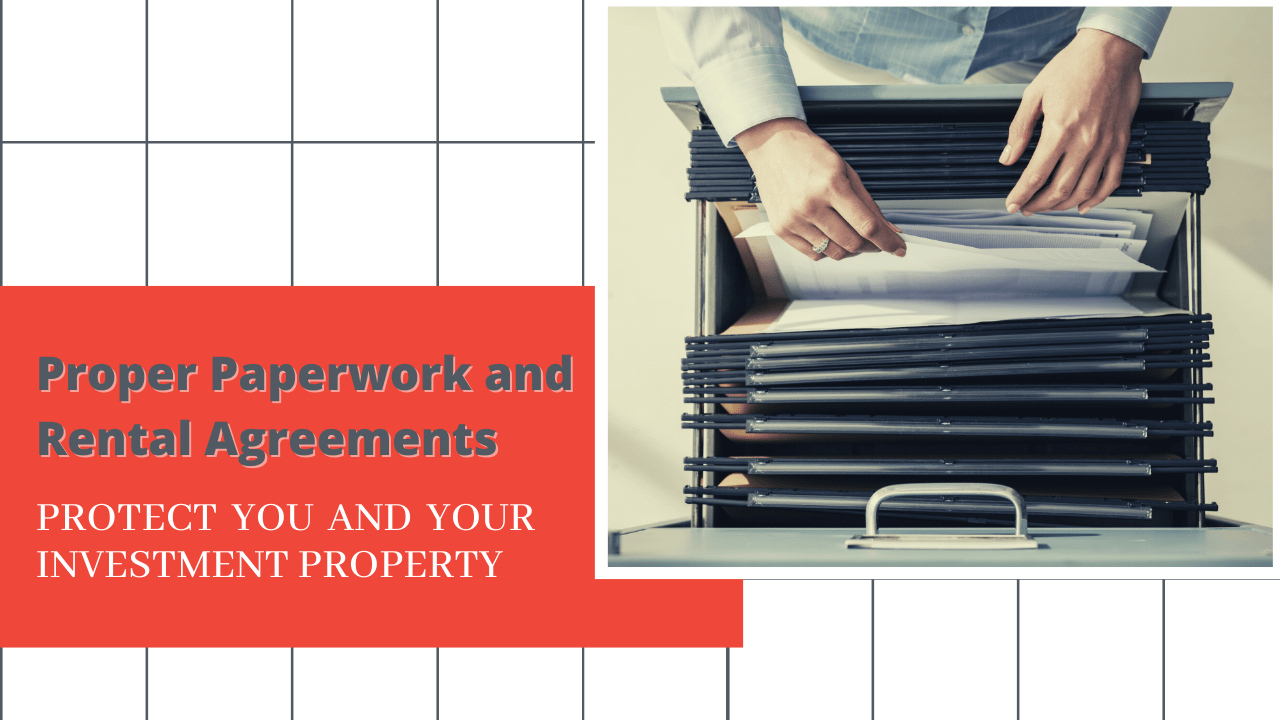Master Your Rental Property Paperwork: Organizing Tips

In the whirlwind world of property management and real estate investment, the importance of organizing your rental property paperwork cannot be overstated. Effective organization not only helps in maintaining compliance with legal requirements but also streamlines operations, making the rental property business more efficient and profitable. Whether you're managing a single property or a portfolio of investments, keeping your documents in order is key. This comprehensive guide will provide you with actionable tips and strategies to master your rental property paperwork, reducing stress and enhancing productivity.
Understanding the Importance of Organized Rental Paperwork


At the core of efficient property management lies organized rental property paperwork. This isn’t just about keeping things neat; it’s about safeguarding your investment, ensuring legal compliance, and providing clear, accessible information to all stakeholders:
- Compliance with Legal Requirements: Landlords must adhere to numerous local, state, and federal laws, which requires meticulous documentation.
- Lease Agreements: Having well-organized lease agreements means quick access to tenant obligations, rent payment history, and terms of tenancy.
- Financial Management: Organized records make tracking income and expenses straightforward for tax purposes and financial statements.
- Emergency Preparedness: Should any legal disputes arise, having documents in order can make a significant difference in resolution.
- Property Value and Reputation: Professionalism in how you manage your property’s paperwork can influence your property’s value and your reputation as a landlord.
Setting Up Your Organization System

Establishing a structured system is the first step towards mastering your rental property paperwork:
Choosing the Right Tools

- Physical Filing Cabinets: Ideal for those who prefer tangible documents or need to keep originals.
- Digital Document Management: Cloud storage solutions, property management software, and apps designed for document management can provide easy access, backup, and sharing options.
File Nomenclature and Folder Structure

| File Type | Folder Name |
|---|---|
| Lease Agreements | Lease_YYYY |
| Maintenance Records | Maintenance_YYYY |
| Financial Documents | Finance_YYYY |
| Correspondence | Communications_YYYY |

📝 Note: Use date formats consistently for easy sorting and retrieval.
Categorizing Documents for Quick Retrieval

Your rental property paperwork will be much easier to manage if you categorize documents effectively:
Lease Agreements

- Current leases
- Terminated leases
- Lease applications
Financial Documents

- Income Statements
- Expense Records
- Tax Documents
Maintenance and Repair Records

- Maintenance schedules
- Repair Invoices
- Warranties and Manuals
Correspondence

- Tenant Communications
- Legal Notices
- Regulatory Correspondence
Using Digital Tools for Better Efficiency


Embracing technology can revolutionize how you manage your rental property paperwork:
Cloud Storage

- Dropbox, Google Drive, or OneDrive offer secure storage and easy access from any device.
Property Management Software

- Platforms like Yardi, Buildium, or AppFolio can help automate document management, streamline financial tracking, and improve tenant communication.
Automation Tools

- Utilize tools like IFTTT or Zapier to automate processes like sorting emails into folders or updating spreadsheets.
Archiving and Record Retention

Knowing what documents to keep and for how long can save you time and legal trouble:
- Lease Agreements: Retain for at least 6 years or the duration of your ownership.
- Financial Documents: Keep records for 7 years as per tax regulations.
- Maintenance and Repair Records: Keep indefinitely for property history.
Best Practices for Maintaining Organized Paperwork

To ensure your rental property paperwork remains well-organized, consider these best practices:
Regular Updates

- Regularly update your digital and physical files to reflect the current state of your properties.
Backup and Security
- Implement multiple backup solutions to avoid data loss.
Accessibility
- Ensure that essential documents are accessible to relevant parties.
Keep Physical and Digital in Sync
- Maintain consistency between your digital and physical filing systems.
By applying these strategies and tips, you can significantly enhance the organization of your rental property paperwork, leading to a more streamlined, professional, and legally compliant approach to property management. The result is not just peace of mind but also a foundation for business growth and success.
In final summary, organizing your rental property paperwork is more than just good housekeeping; it's a strategic component of property management that impacts every aspect of your rental business. From maintaining legal compliance to facilitating tenant relations and financial tracking, a well-structured document system is indispensable. Remember, the key to mastering this aspect of your business is consistency, regular review, and leveraging the power of technology to enhance efficiency.
How long should I keep tenant lease agreements?
+Lease agreements should be kept for at least 6 years after the tenancy ends or the duration of your ownership for legal and financial purposes.
What documents should I scan and store digitally?
+Scan and store digitally lease agreements, financial statements, tenant applications, maintenance records, and any critical correspondence or legal notices.
Can I use cloud storage for sensitive documents?
+Yes, cloud storage can be used for sensitive documents provided you use services with robust encryption and secure password practices.